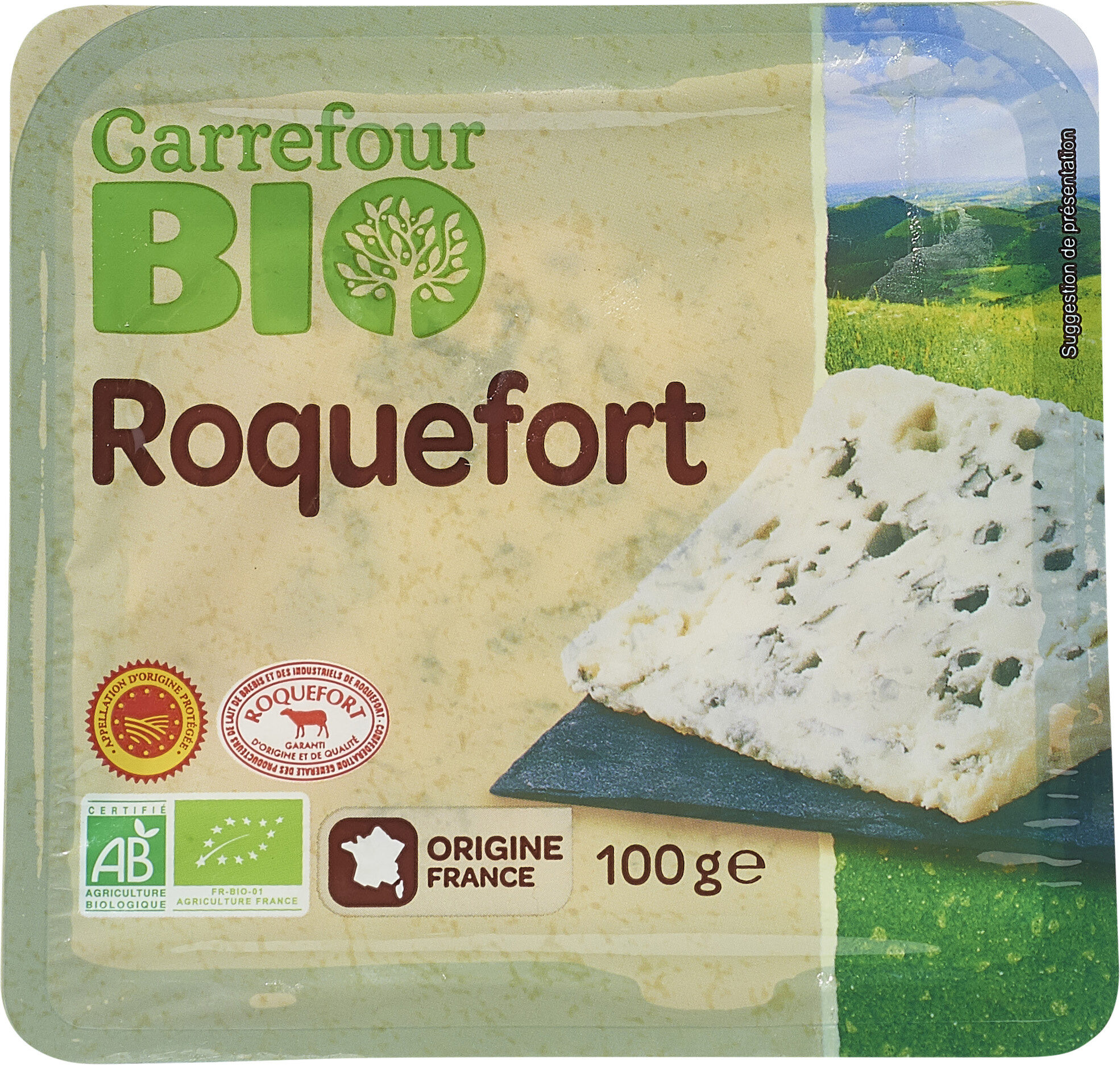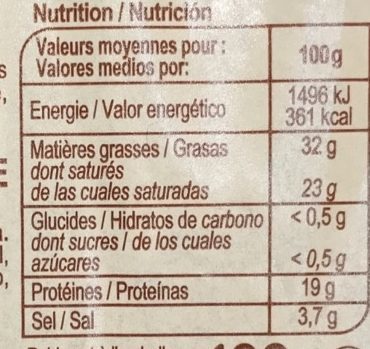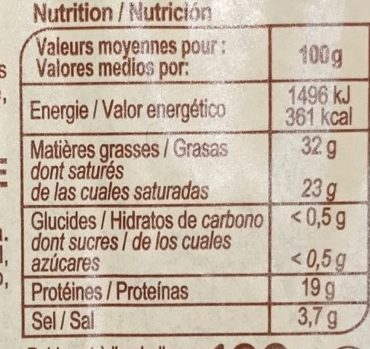Roquefort - Carrefour Bio - 100 g
This product page is not complete. You can help to complete it by editing it and adding more data from the photos we have, or by taking more photos using the app for Android or iPhone/iPad. Thank you!
×
Some of the data for this product has been provided directly by the manufacturer Carrefour.
Barcode: 3270190209904 (EAN / EAN-13)
Common name: Roquefort AOP au lait cru de brebis, issu de l'agriculture biologique.
Quantity: 100 g
Packaging: Plastic, Fresh, Tray
Brands: Carrefour Bio, Groupe Carrefour, Carrefour
Categories: Dairies, Fermented foods, Fermented milk products, Cheeses, Fresh foods, Blue-veined cheeses, French cheeses, Unpasteurised cheeses, French blue-veined cheeses, Sheep's-milk cheeses, Industrial cheese, Roquefort cheeses, Aoc-cheeses, Labeled-cheeses, fr:Produits AOC, fr:Produits labellisés
Labels, certifications, awards:
Organic, EU Organic, EU Agriculture, FR-BIO-01, French agriculture, Green Dot, Made in France, PDO, AB Agriculture Biologique, fr:Origine France, fr:Eco-Emballages, fr:Roquefort Garanti d'Origine et de Qualité - Brebis Rouge



Origin of ingredients: France, fr:12250 Roquefort-sur-Soulzon, fr:Agriculture France, fr:Aveyron, fr:Midi-Pyrénées
Producer: Fabriqué par SCPR-CS70240-12250 Roquefort-sur-Soulzon
Manufacturing or processing places: Société Affinage Conditionnement - Ets Conditionnement [Filiale Société des Caves et des Producteurs Réunis de Roquefort - SCPR (Filiale Groupe Lactalis)] - Rue de la Clinique - 12250 Roquefort-sur-Soulzon, Aveyron, Midi-Pyrénées, France
Traceability code: FR 12.203.018 CE - Roquefort-sur-Soulzon (Aveyron, France)
Stores: Carrefour, carrefour.fr
Countries where sold: France
Matching with your preferences
Environment
Carbon footprint
Packaging
Transportation
Labels
Other information
Other information: Logo AOP Logo Brebis rouge Picto ORIGINE FRANCE 100 g e
Conservation conditions: A conserver entre +2°C et +6°C. A consommer rapidement après ouverture.
Customer service: Interdis - TSA 91431 - 91343 MASSY Cedex - France
Report a problem
Data sources
Product added on by andre
Last edit of product page on by roboto-app.
Product page also edited by b-alex, carrefour, driveoff, ecoscore-impact-estimator, jacob80, kiliweb, manu1400, momo, openfoodfacts-contributors, org-carrefour, packbot, quechoisir, segundo, tacite, teolemon.












